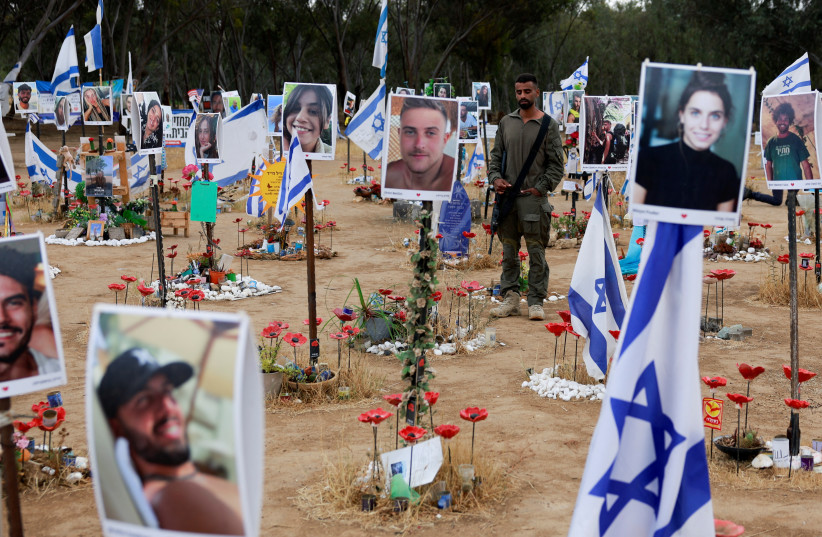Shembe Nazareth Baptist Church leaders returned to South Africa on Thursday after a solidarity visit to Israel, tasked with the challenge of preaching solidarity with Israelis and understanding the situation in the Holy Land.
It was not the first time Inkosi Phakama Shembe, one of the leaders, had been to Israel, but he spoke to The Jerusalem Post on Friday about how for many of the leaders of the 8 million congregant Christian denomination it was an emotional first experience.
“Our trip was very good. It was emotional too but because of the war,” said Shembe.
Shembe said he was moved to tears when meeting a survivor of the October 7 massacre, and promised her that they would support her and share her story. After the Hamas pogrom in the South, “members of the church, especially that delegation that we were going with, were all in tears,” but Shembe expressed to the Post concern that in South Africa, the massacre of 2023 had already been forgotten.
“In South Africa, they believe this propaganda that Israel is attacking civilians in Gaza. They don’t even talk about October 7 anymore. There’s no one in South Africa that talks about October 7,” said Shembe. “When you talk about October 7, they will tell you about 1948. When it was 1948, I was not there. I’m talking about what happened last year.”
The massacre changed Shembe’s perspective, who said that while many in the church supported Israel, they had assumed that everything in the Levant was slowly improving because there was a peace process. Shembe said he had “woke up” and that he now sought to use his voice “for the truth.”
Shembe’s quest for truth comes during a period of tensions between Israel and the South African government, which has filed genocide cases against Israel at international legal forums. However, it was the African National Congress-dominated government, not the entirety of the South African people, that expressed animus against Israel, according to Shembe.
Government, not the people
“We have to understand that it’s not the South African people that are in this to take Israel to court. It’s our government, led by the ANC. In South Africa, we’ve got a lot of political parties who’ve got their different views,” said Shembe.
Some in the government were against the trip, and Shembe expected more criticism and media challenge upon returning home, though he had yet to face media teams. Shembe extended his criticism of the government to a lack of support for the local Jewish community.
“The Jewish community were with us in the times when we, our leaders, with former president Nelson Mandela, were liberating South Africa. The Jewish community, they worked hard. There’s some who even went to prison to liberate South Africa,” said Shembe.
Shembe noted that his church, which was founded in 1910, had many shared practices with Jews, holding important Hebrew scriptures and venerating Saturday as the Sabbath.
The church leader believed that he could use the influence he had within the Shembe community to “advocate what is happening between Israel and our government.” He planned to hold conferences with members of his temples and tell them, “It’s the time that we have to support the Jewish community in Israel.” He also called for the return of the South African ambassador to Israel.
One of the misconceptions that Shembe sought to dispel was the accusation of apartheid in Israel, which was part of the ANC government’s propaganda against Israel.
“When you say to a South African, Israel is an apartheid state, that’s when people will say, ‘Oh, we’re not going to support Israel if Israel is an apartheid state, because we know what apartheid did to our community,” said Shembe. “We have to go back to our community and say, ‘We were in Israel. We walked everywhere there. We didn’t see an apartheid state.’ So people must go to see Israel.”
Shembe hoped that the trip, organized in cooperation with South African Friends of Israel, would show Israelis that they had friends in South Africa. During their visit, members of the delegation held a “Declaration of Friendship ceremony” at the Friends of Zion Museum in Jerusalem last Sunday. Shembe shared a message of solidarity to attendees.
“We are sending our deep solidarity with our friends in Israel,” said Shembe.

